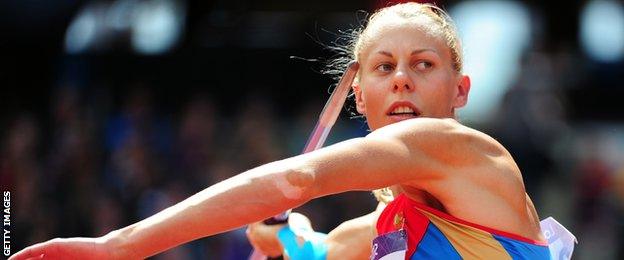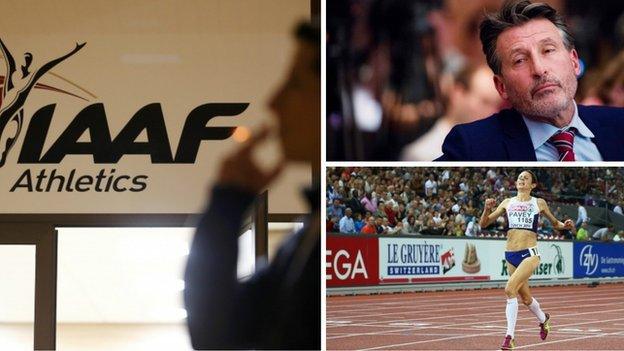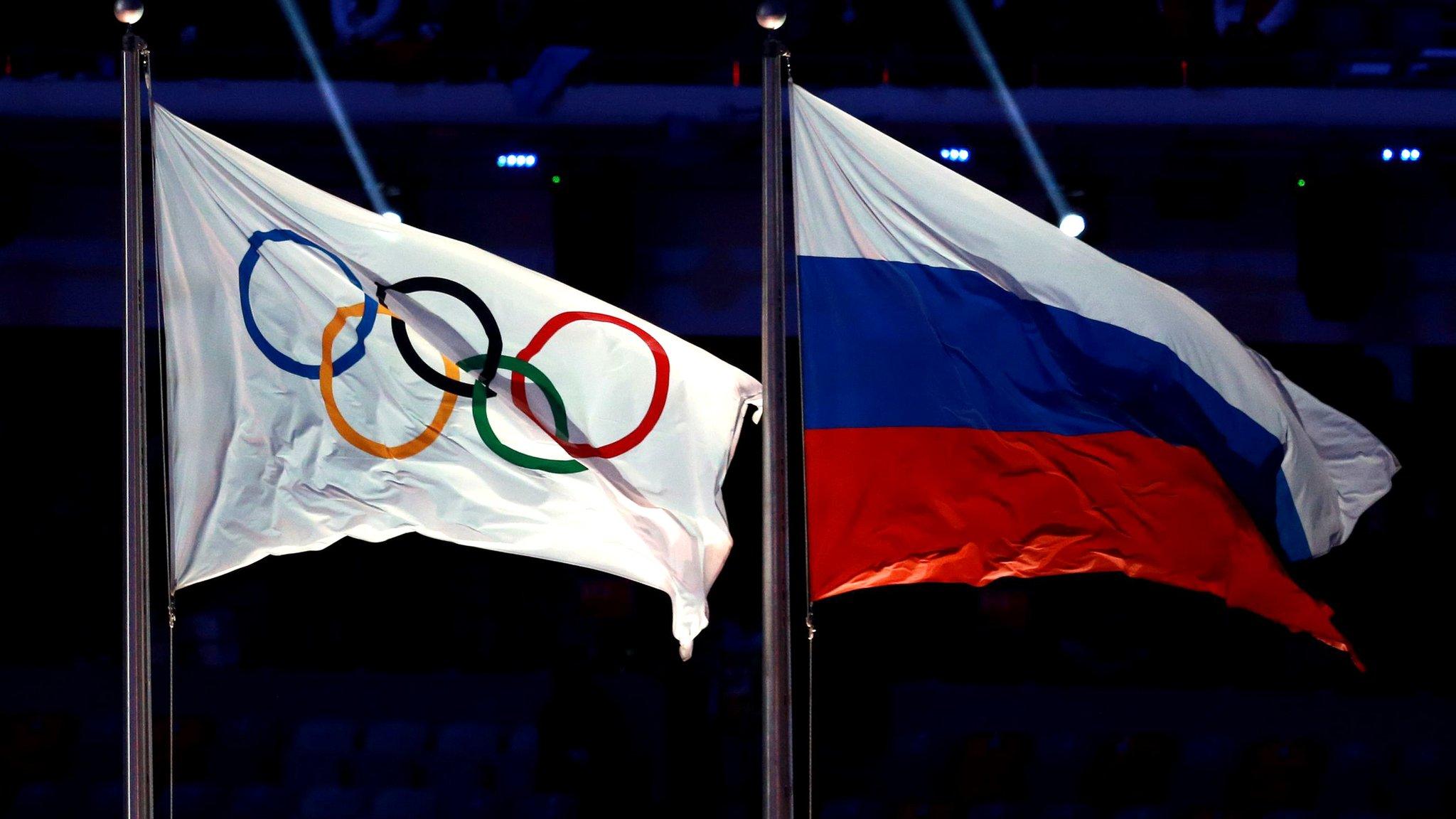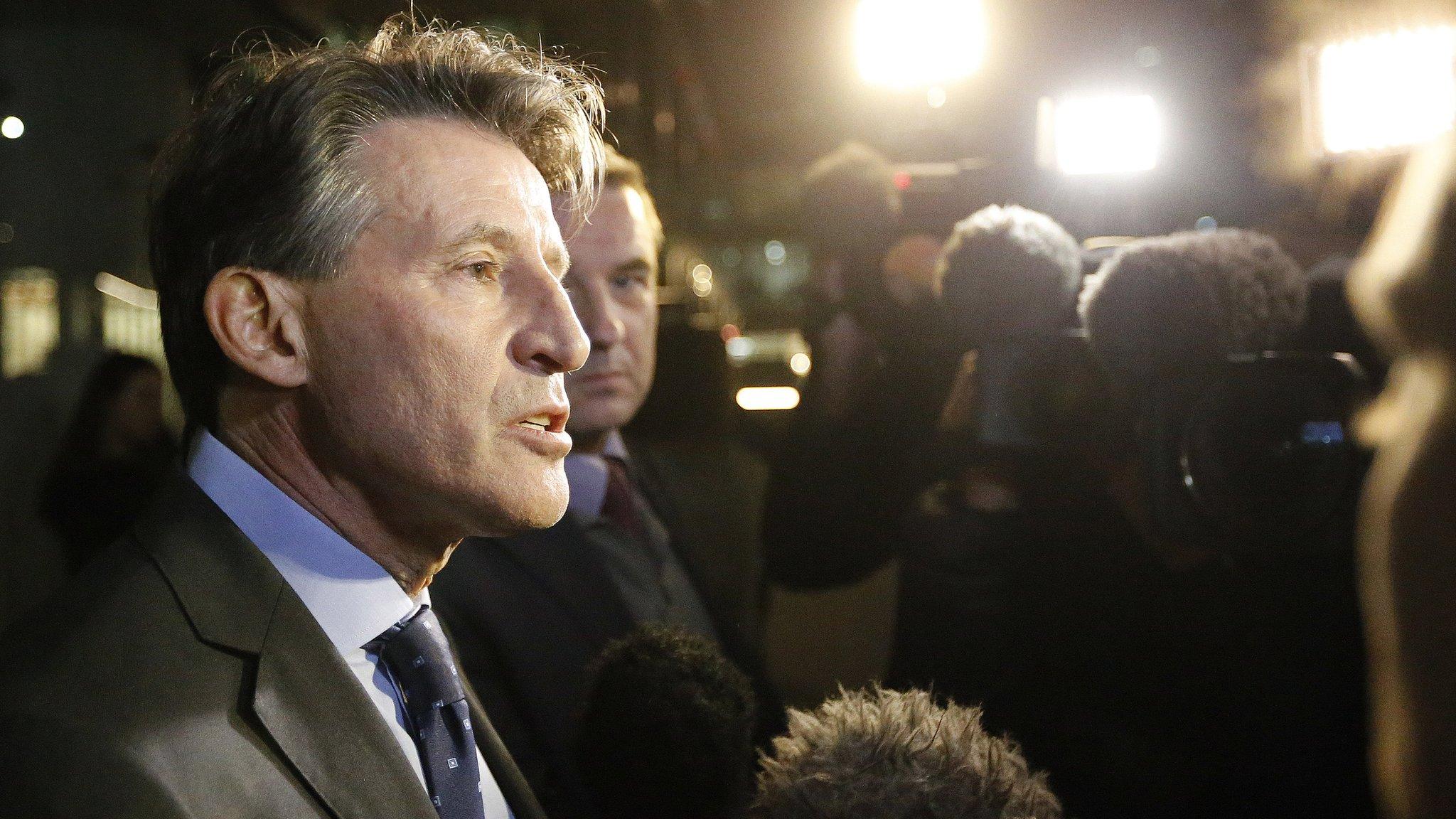Ennis-Hill & Radcliffe doubt over Russian athletes
- Published
Jessica Ennis-Hill wants 'drastic action' taken against Russia
Jessica Ennis-Hill and Paula Radcliffe would still have doubts about Russian athletes at the 2016 Olympics even if the country was cleared to compete.
Russia is currently banned from athletics competitions after being accused of widespread doping.
Olympic and world heptathlon champion Ennis-Hill wants "drastic measures" in place if Russia is allowed to compete.
Marathon world record holder Radcliffe added that other countries may also need investigating.
Will it get better?
In addition to the problems faced by Russia, the IAAF has been accused of corruption and helping to cover up doping in the country.
"There is obviously a lot more to come out and it seems to be getting worse and worse," Ennis-Hill said in an interview with BBC Sport.
"It's awful to see but at the same time you have to think that our sport has to go through this really terrible time.
"It has to go to the very bottom, to the darkest place for it to then rise and come out the other side."
She said the sport was "very close" to the bottom, adding: "You put your faith and confidence in organisations to make sure the sport is governed well, but obviously that hasn't been the case.
"It needs to be addressed and it is a huge problem."
When Ennis-Hill lost out to Chernova |
|---|
Ennis-Hill finished second behind Russia's Tatyana Chernova at the 2011 World Championships in Daegu, South Korea. |
Chernova was later given a two-year doping ban and stripped of her results over a two-year period. |
However, she kept the gold medal she won by beating Ennis-Hill. |
That's because Chernova's records were annulled from 15 August 2009 to 14 August 2011. |
The heptathlon event at the 2011 Championships finished on 30 August. |
"In my experiences competing against Chernova, I had the feeling that something wasn't quite right," said Ennis-Hill. |
Is doping widespread?
Radcliffe, the 2005 marathon world champion, suggested that doping was likely to be a problem in countries beyond Russia, and questioned whether the country would be able to sort out its problems before the Olympics.
She told BBC Radio 5 live: "With everything that's come out, and the details of how ingrained it was within their system, I do wonder whether they actually know how to train and prepare for events properly without taking the cheating route.
"To turn that around in a few months and come back in for Rio is a tough call.
"I think there are probably other countries that also need to be looked at in the same light. I don't think it's confined just to Russia."
Why was Russia banned?

Tatyana Chernova was given a two-year ban for doping in July 2013
IAAF members voted 22-1 to ban Russia after an independent World Anti-Doping Agency report accused the country of "state-sponsored doping".
The Wada commission, led by chairman Dick Pound, suggested that the Russian athletics federation, Russia's anti-doping agency and Russia itself could not be considered anti-doping code-compliant because of what it claimed was widespread cheating.
The report claimed to have evidence of "direct intimidation and interference by the Russian state with the Moscow laboratory operations".
The Russian anti-doping agency was also accused of giving athletes advance notice of tests, hiding missed tests, bullying doping control officers and their families, and taking bribes to cover up missed tests.
According to the report, London 2012 was "sabotaged" by "widespread inaction" against athletes with suspicious doping profiles.
What next for Ennis-Hill?
She won gold at 2012 London Olympics and claimed a second world heptathlon title in 2015, just 13 months after giving birth to her first child.
She will hope to put the controversy over doping to one side as she aims to retain her Olympic title in Rio.
"I'll be there to do a job and I don't want to be distracted by what other people are doing and what they are wrongly doing," she said.
"I want to focus on my performances and make sure I do that properly."
Read more on the doping scandal | |
|---|---|
- Published14 January 2016

- Published29 December 2015

- Published13 November 2015

- Published8 February 2019
